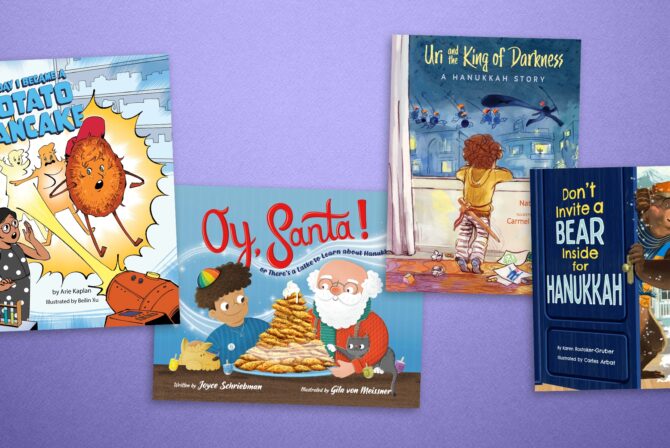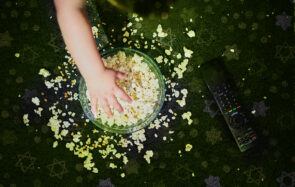In this week’s portion, Vayeshev, we read about Joseph’s father giving him the coat of many colors. This is the last straw for his jealous brothers, who decide to get rid of him: they cast Joseph down into a pit, then sell him to some passing slave traders. “When Joseph came up to his brothers…they took him and cast him into the pit. The pit was empty; there was no water in it.”
Although I’ve read this story before, this time that empty pit stopped me for a moment. It felt personal. Not so long ago, for about a year and a half after my daughter was born, I was in a pit of my own.
It took me 14 months to realize there was a problem. I was on a plane, landing at SFO with major turbulence, holding my little daughter on my lap. As we jolted down towards the fast-approaching tarmac, I found myself thinking with a strange sort of excitement: “Maybe the plane will crash and I won’t have to be here anymore! And it’s perfect because I won’t be leaving her alone, either.”
Thankfully, my next thought was: “What was that??”
That night, we stayed at our friends’ house in Oakland. After I’d picked yet another fight with my husband and we’d exhausted each other going back and forth and he’d gone downstairs to sleep on the couch, I found myself alone in the guest bedroom, searching on my computer for postpartum depression. In fact, I’d been doing that intermittently for the last year, late at night, almost automatically, without knowing why. Some part of me had known for a long time that something was off. That moment in the plane was my first step towards addressing it.
* * *
Joseph was down in the pit because his jealous brothers wanted to get rid of him, but my descent was no one’s fault. As far as I can tell, it was some invisible combination of factors: postpartum hormones; a difficult birth and slow C-section recovery; my heartbreaking inability to create enough milk for my daughter despite endless pumping; visits to lactation consultants, and even drugs. Add to all that the financial, emotional and marital stresses of reinventing our lives, moving across the country and trying to make a living as freelancers without childcare help. Oh, and probably some genetic disposition, given my maternal grandmother’s legendary postpartum breakdown.
Looking back, it sounds strange that it took 14 months for me to realize something was wrong. But everyone said the first year was difficult. I figured that I was just weaker than everyone else when presented with the same challenges. I’d been spoiled by waiting too long to have a kid; getting used to 35 years of independence. I’d made a stupid career decision to be an artist and now I was paying for it.
After all, unlike my grandmother, I didn’t have a breakdown. I didn’t have trouble eating, or sleeping, or doing my work. I didn’t even have trouble bonding with my baby, as so many women with postpartum depression do.
I was simply miserable and angry, almost all the time.
That’s why, as I sat on that plane wishing to crash with my daughter in my arms, my next feeling was relief. The moment I realized I wasn’t just lazy or spoiled, but that I needed help.
* * *
“The pit was empty; there was no water in it.” The Talmud notices the redundancy in this sentence; if a pit is empty, of course there’s no water in it. It interprets the sentence to mean there was no water in that pit, but there were snakes and scorpions.
Now that I’m safely above ground, I’ve been thinking about those snakes and scorpions. It turns out that in Judaism, although snakes have the power to wound and connive, their image also contains the power to heal. Elsewhere in the Torah, during an epidemic of snakebites, God tells Moses to make a bronze serpent and hold it up on a post. Any person who suffers a lethal snakebite can be healed by looking at this bronze serpent. Precisely by looking at an image of a snake like the one that bit them in the first place, they are made whole again.
I understand this to mean that healing comes in part from hearing each other’s stories, looking at the snakes we hold up for each other, and the images of the time we spent down there. I understand this to mean that we need to tell our stories, if we can.
One of the things that helped me most in my healing was reading books (like Brooke Shields’ memoir) and essays (like this harrowing account by Sharline Chiang) about other mothers’ experiences. Reading their stories, I understood that I wasn’t alone. I wasn’t stuck down there forever. I wasn’t a bad mother. I wasn’t weak. I was just in a pit, and I needed help. And that realization allowed me to get it, to climb up to the life that had been waiting for me all along.
I wish my grandmother had been able to do the same.
Like this post? Get the best of Kveller delivered straight to your inbox.








